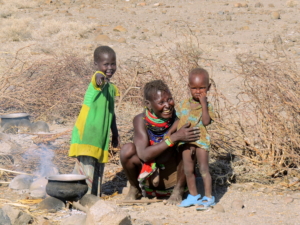Five Facts About the Work of the United Nations Population Fund

The United Nations Population Fund is a U.N. agency that works to promote gender equity and respond to gender-based violence around the world. It provides care and resources to underprivileged people in order to reduce maternal and childhood mortality. The work of the United Nations Population Fund has made a difference for millions of families. Here are five facts about this important organization:
Five Facts About the Work of the United Nations Population Fund
- The United Nations established it in 1969. Its original name was the United Nations Fund for Population Activities, and it was part of the United Nations Development Fund; the Development Fund focused on providing assistance to developing countries. Two years later the United Nations placed the Fund for Population Activities under the authority of the General Assembly, the main policy-making organization of the U.N. In 1987 it changed its name to the United Nations Population Fund, but it retains its original abbreviation: UNFPA.
- It is active in more than 150 countries. The work of the United Nations Population Fund affects people around the world, with a focus on those in developing countries. The 150 countries where it is active makeup more than 80% of the world’s population. The countries are divided into six regions: East and Southern Africa, West and Central Africa, Arab States, Asia and the Pacific, Eastern Europe and Central Asia and Latin America and the Caribbean.
- It works to prevent child marriage. Child marriage affects millions of young girls, particularly in impoverished countries in Asia, Africa and the Middle East. Girls who experience child marriage are more likely to suffer from domestic violence and to contract HIV/AIDs. The UNFPA has helped create a global campaign to end this practice. It works with the governments of countries where child marriage is prevalent to improve the rights of adolescents and increase girls’ access to health care services and education. The work of the United Nations Population Fund also encourages the creation and strengthening of laws that establish the minimum age of marriage as 18.
- It is providing support to those affected by COVID-19. The COVID-19 pandemic has had a huge impact on the entire world, but it has been especially arduous for the global poor. Many people in developing countries do not have access to the healthcare that they need. In addition, many women are trapped in situations where they face domestic violence due to sheltering-in-place. The work of the UNPF includes providing health supplies such as contraceptives and personal protective equipment to people in impoverished countries; the organization also protects those who are experiencing gender-based violence. The organization is working to raise awareness of these situations while offering protection to the women who are experiencing them.
- The United States has withdrawn its funding to the UNFPA. In 2017, the United States government announced its plan to cut off the funding it provided to the United Nations Population Fund, over $30 million per year. This was a part of several United Nations funding cuts the Trump administration instituted. The U.S. stated that it was withdrawing funding from the UNFPA because it participates in involuntary sterilization and coercive abortion in China. The UNFPA refuted these claims, and stated that it has not broken any U.S. laws. The Trump administration used the funding that would have gone to the UNFPA for the United States Agency for International Development instead.
Mothers and children experience some of the worst effects of global poverty. A lack of access to vital healthcare infrastructure can lead to women having limited reproductive rights, and to children not getting the care they need. The work of the United Nations Population Fund has improved the lives of millions of underprivileged people around the world by giving them the resources they need to plan their families and care for their children. It is among the most imperative apparatuses of the United Nations.
– Gabriel Guerin
Photo: Wikimedia
